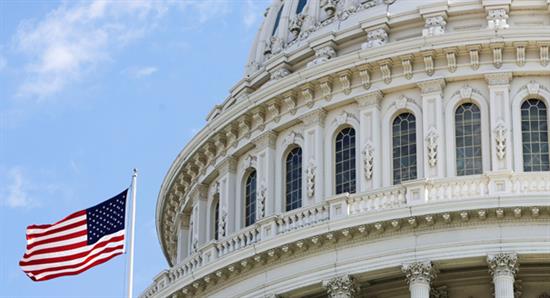House votes to kill estate tax and make sales tax break permanentSales tax bill favorable to Texas alsoadvances; Obama threatens vetoes
Washington,
April 16, 2015
Houston Chronicle
By Kevin Diaz | April 16, 2015 WASHINGTON - The Republican-led House flouted a White House veto threat Thursday, passing legislation to repeal estate taxes and permanently extend the federal deduction for state and local sales taxes - a boon to taxpayers in Texas and other states that have no income tax. Despite the veto threats issued earlier in the week, Texas Republican Kevin Brady, the architect of the two tax provisions, vowed to press ahead. "The president apparently has a warehouse of veto pens," The Woodlands lawmaker said in an interview after the vote. "I'm sure he'll continue to use them until they're depleted, but that won't stop us from standing up for hard-working taxpayers." The state and local sales tax deduction – worth about $1 billion a year to Texas taxpayers – got 34 Democratic votes, including those of Houston Democrats Sheila Jackson Lee, Al Green and Gene Green. Altogether, lawmakers from Texas provided nine Democratic votes in a largely partisan 272-152 split. Repeal of the inheritance tax - which Republicans dub the "death tax" - got much less bipartisan support. It would lift the 40 percent levy on inherited assets of more than $5 million, a move Democrats decried as a giveaway to rich heirs and heiresses. Despite the partisan votes on the tax proposals - and their uncertain future in the Senate - Brady said they could be the catalyst for a more ambitious agenda of simplifying the U.S. tax code, a project he's been working on for years as a top Republican on the tax-writing Ways and Means Committee. "On the Ways and Means Committee, we believe that removing the asterisks from the tax code with these temporary provisions helps us move forward on overall tax reform," he said. 1 in 5 Texans benefit The federal sales tax deduction is used by about a fifth of Texas tax filers, saving an average of $383 a year for those who claim it, according to a 2011 study of IRS data. It has generally been renewed annually by successive Congresses over the past decade. It was last renewed in December, when it was extended for the 2014 tax year, whose filing deadline passed on Wednesday. The Lone Star State ranks third in the nation in the percentage of those who make use of the deduction, making it a potent issue for Texas lawmakers in both parties. For Texas, one of nine Republican-leaning states with little or no income tax, the sales tax deduction long has been seen as a leveler with other states where taxpayers can deduct their state income taxes. Brady noted that the 272 House members who supported the permanent extension come close to the two-thirds majority needed to overcome a veto by President Barack Obama. But that "veto-proof" threshold is much less likely in the Senate, even if Democrats don't first throw up procedural hurdles to prevent it from passing. The White House veto threat noted that the sales tax deduction would add $42 billion to the deficit over the next 10 years, a claim Brady called "disingenuous." "Extending it permanently or extending it year to year is exactly the same dollar amount," he said. The main benefit of making it permanent, he added, is to provide "honest score-keeping and certainty." Democrats, however, aimed their harshest criticism at the estate tax repeal. The White House said it would add $269 billion to the deficit over 10 years, while benefitting less than 1 percent of all Americans. The office of Democratic Leader Nancy Pelosi issued a statement Thursday calling it "a shameless effort that exclusively benefits the wealthiest of the wealthiest in our country." Brady and other Republicans cast it as a measure to help small-business owners and especially Texas farmers, who often have large land, animal and machine assets wrapped up in their family operations. "The death tax is an unfair tax that penalizes Texas farmers and ranchers who want to hand down their small business to the next generation," said freshman Texas Republican Brian Babin of Woodville. Will Hurd, a freshman Republican from San Antonio, called the tax "un-American." "I've had enough of the hypocrites who talk about achieving the American Dream and then support policies that punish the families who do," Hurd said. "Family ranches, farms and small businesses across the district work hard and sacrifice to build something they can pass on to the next generation. Blind-siding a family who has just lost a loved one with a 40 percent tax bill that may cause them to lose their family business is immoral and un-American." Cuellar votes with GOP The mostly party-line 240-179 vote to repeal the estate tax peeled off just seven Democrats who voted with the Republican majority. Among them was U.S. Rep. Henry Cuellar of Laredo, who also supported extending the sales tax deduction. Brady's two tax measures were part of a broader GOP package of "tax week" bills focused on tax breaks and the Internal Revenue Service, which has been under fire over the past year for targeting Tea Party and other conservative groups. A more sweeping plan to lower rates and remove tax breaks has long been on hold in Congress, where every tax deduction, from home mortgage interest to health insurance, has a well-entrenched constituency. |

